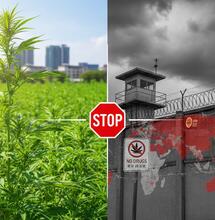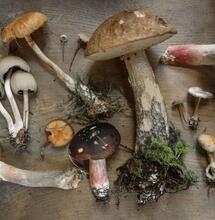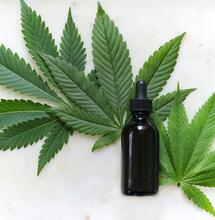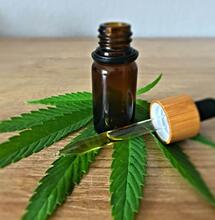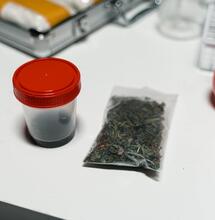The Promise of Psilocybin Mushrooms
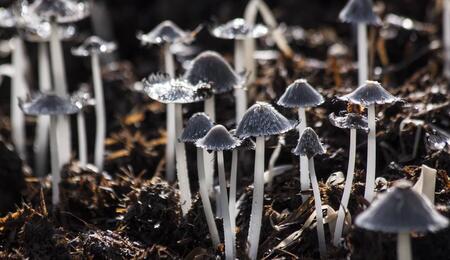
In recent years, there has been a resurgence in the interest in psilocybin, most notably its potential to treat mental health conditions such as severe or clinical depression, post-traumatic stress disorder (PTSD), traumatic brain injury (TBI), and obsessive-compulsive disorder, among others. There are developments in both research where scientists investigate the therapeutic value of psilocybin psychedelic mushrooms, and legislation that permits psychedelics for medicinal use.
The demonization of controlled substances is seeing a kind of closure in the U.S. and other parts of the world. Society has become more accepting of commercial and private re-examination of the use of psychedelic substances and whether they can work as viable tools for improving mental health.
Human consumption of psychedelics has a long tradition. Psychedelic substances have been used in ancient religious ceremonies and rituals and in a recreational way, comparable to smoking cannabis and consuming alcoholic drinks.
Psilocybin, the primary psychoactive compound in "magic mushrooms," is probably the most popular psychedelic compound.
Patients enrolled in psilocybin trials are typically resistant to conventional antidepressant therapy. Trials include cases where antidepressants only have temporary, short-lived effects and psilocybin is the last hope to help improve the patient's health outcome.
Growing Interest in Psilocybin Research
Psilocybin appears to be a viable therapeutic compound, and some contemporary research seems to confirm those claims.
A study published in the peer-reviewed journal JAMA Psychiatry in 2020 claimed that psilocybin-assisted psychotherapy was an effective and quick-acting treatment for a group of 24 participants who suffered from major depression.
A more recent study, issued this year in The New England Journal of Medicine, found that individuals suffering from severe depression may find relief from just a single dose of a synthetic version of psilocybin, or a crystalline form of the drug. This research involved a more significant number of participants or 233 adults with treatment-resistant depression to be exact. It took place in 22 sites in the United States, Canada, the United Kingdom, and Europe.
All participants had received their diagnosis after failing to respond to two courses of antidepressant therapy. The patients were treated with psilocybin at a dose of 25 mg, 10 mg, and 1 mg (control), plus they received psychological support.
The researchers wrote that the synthetic psilocybin formula provided "an immediate, fast, rapid-acting, sustained response."
While the results are encouraging, and psilocybin reduced depression scores significantly, most trial participants reported adverse effects as well. These side effects included headaches, nausea, dizziness, and sometimes even suicidal thoughts. This indicates the need to optimize psilocybin therapy in ways where the risks remain minimal.
More Research Is On the Way
A Canadian-based pharmaceutical company known as Apex Labs, which specializes in psilocybin treatments for military veterans, announced in November that it is carrying out the first North American take-home multi-dose psilocybin clinical trial.
The company received a "no objection letter" from Health Canada. As part of the trial, it will test psilocybin efficacy for veterans suffering from depression and PTSD. Patients will be supplied with low doses of psilocybin for oral use in a labeled package with at-home instructions.

Furthermore, researchers at the University of Guelph (UG) in Ontario, Canada, also recently received approval letter to study psilocybin mushrooms. Their job will be to look at the biological activity of psychedelic mushrooms and examine the full scope of compounds they contain, and whether psilocybin works alone or in combination with some of those other compounds.
One of the researchers on the team, Max Jones, from UG's Ontario Agricultural College (Department of Plant Agriculture), who has also studied cannabis throughout his career, emphasizes the fact that there are more than 200 species of mushrooms in nature that can produce psilocybin.
"Those species aren't that closely related; they're diverse," he said in a statement. "So that makes scientists like me wonder: what else are these mushrooms producing? If you have 200 species producing a compound that affects the human brain, it's likely they are producing other interesting compounds, too."
Last but not least, a third initiative will study why mushrooms evolved to have psychedelic properties. This will be a task for researchers affiliated with the University of Plymouth. They will examine a hypothesis of whether fungi evolved with substances like psilocybin so they can repel predators.
The Legislation Landscape for Psychedelic Mushrooms
To discover the full potential of psychedelic compounds such as psilocybin, there's the need for proper legislation that will first and foremost allow this kind of research. The good news is that this is already happening. Legislation is being introduced that widen the opportunities for scientific research on psychedelics.
In the November ballot, Colorado voters approved Proposition 122, a bill that defines certain psychedelic plants and fungi as natural medicines. The list includes psilocybin. Proposition 122 also decriminalizes the personal use, possession, growth, and transport of natural medicines for those aged 21 and above. And it will also help create the Regulated Natural Medicine Access Program for licensed healing centers to administer natural medicine services.
Earlier this year, San Francisco moved to decriminalize entheogens, under the premise that entheogenic plants "can benefit psychological and physical wellness, and can reestablish human's inalienable and direct relationship to nature."
Oregonian lawmakers, the first state where psilocybin was legalized for personal use back in 2020, are now in the final stages of preparing rules and regulations on psilocybin.
Similar allowances on psilocybin are also being installed in Canada. Most notably, Quebec advanced the acceptance of psychedelic therapies, with that becoming the first governing medical body in the country to publicly fund medical psilocybin-assisted psychotherapy. Such a move not only recognizes psilocybin but also sets a precedent for other Canadian provinces to follow suit with Quebec.
As more jurisdictions allow psilocybin psychotherapy and research, more people in need will have access to these treatments. For medical scientists, it is an opportunity to see the entire scope of effects psilocybin generates on patients, what doses work best, and hopefully they work their way with psilocybin-derived drugs that deliver health improvements without the adverse effects.
Also read on Soft Secrets:
- Can Psilocybin Help Treat Alcohol Addiction?







